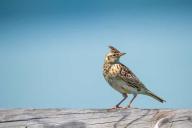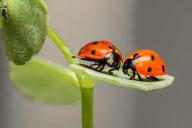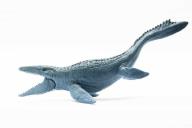research
A new discovery: Don't put your kids in front of the TV – it might hurt them
TV shouldn't raise your kids – and it's not just about the things they can learn from it. Babies and toddlers who watch a lot of TV or videos might show unusual behaviors related to their senses, like being uninterested in activities, seeking more intense stimulation, or feeling overwhelmed by loud sounds or bright lights.
Kate Yakimchuk child development child behavior brain tv Psychology 10 January 2024A new discovery: Complex sentences are useful – they make your brain work
It always takes more time and effort to process new or unusual information, and it might be pretty beneficial. Specialists have discovered that sentences with unusual grammar or unexpected meaning tend to activate the brain's language processing centers more strongly.
Kate Yakimchuk brain development information intelligence human brain Psychology 10 January 2024A new discovery: The science behind surprise – how it works
Children are easily surprised, but adults are harder to surprise because of how their brains develop. Recognizing surprises is an important skill, as new things can sometimes be dangerous.
Kate Yakimchuk surprise brain development human brain science Psychology 10 January 2024A new study: Hypnotizability – how scientists can change it in you
Hypnotizability, which refers to how easily someone can be hypnotized, is a stable trait that doesn't change much throughout adulthood. However, scientists have discovered a way to temporarily increase hypnotizability using electrical stimulation of a specific area in the brain.
Kate Yakimchuk hypnosis self-consciousness brain activity science Psychology 9 January 2024A new discovery: A new liver disease treatment
An experiment conducted by the team of specialists discovered why certain fatty acids can help treat a liver condition called nonalcoholic steatohepatitis. The specialists used a technique called multi-omic network analysis to understand how omega-3 supplements improved NASH.
Kate Yakimchuk liver disease treatment healthy food liver Cooking 9 January 2024A new discovery: Raw meat – dogs shouldn't eat it
Scientists tested 600 healthy pet dogs and discovered that giving them raw meat increases the chances of them releasing E. coli bacteria. This particular type of E. coli is resistant to a commonly used antibiotic called ciprofloxacin.
Kate Yakimchuk dog food raw meat health bacteria Animals 9 January 2024A new discovery: Less amount of amino acid helps the mice
A recent experiment with mice suggests that reducing the amount of an amino acid called isoleucine in their diet can have several benefits. The mice had longer lifespans, became leaner and less frail as they aged, and had reduced risks of cancer and prostate problems.
Kate Yakimchuk lab mice amino acid health food Animals 9 January 2024A new study: The meaning of the first bite
When we're really hungry and want to eat a lot, our brain actually uses our sense of taste to stop us from going overboard. A group of scientists found that when we taste food, a specific set of brain cells immediately pay attention and help us eat in moderation.
Kate Yakimchuk eating habits healthy diet food bite Cooking 8 January 2024A new discovery: Long faces – why does evolution do that?
Horses have long faces because they can, according to evolutionary biologists. Large mammals often have longer faces compared to their smaller relatives due to adaptations for feeding.
Kate Yakimchuk evolution animal facts animal adaptation faces Animals 8 January 2024A new study: Decoding primate language – is it possible?
A team of specialists conducted a study to understand how we recognize and differentiate the vocal sounds of primates and humans. They found that our ability to identify these sounds is not solely based on our genetic similarity but also on the type of frequencies emitted.
Kate Yakimchuk languages intelligence wild nature primate intelligence Animals 7 January 2024A new study: Apes have amazing memory – they recognize their friends after decades
A new study shows that apes can recognize pictures of their friends even after not seeing them for more than 25 years. The study demonstrates the longest-lasting social memory found in animals other than humans.
Kate Yakimchuk animal adaptation apes memory forming intelligence Animals 7 January 2024A new study: Processed food is actually bad – and it can even cause cancer
A new experiment looked at information from 450,000 adults over 14 years and found that eating more ultra-processed foods (UPFs) may raise the risk of getting cancers in the mouth, throat, and esophagus. The results show that this connection between UPFs and cancer risk is not just because of being overweight.
Kate Yakimchuk fast food healthy food cancer tips Cooking 7 January 2024A new discovery: Bees losing their sense of smell – and pesticides are the problem
Exposure to pesticide sprays is widely known to harm honey bees. A recent study has revealed its impact on their sense of smell, potentially disrupting their communication signals.
Kate Yakimchuk bees sense of smell good insects damage Animals 6 January 2024A new discovery: New birds discovered – new lark species
Scientists from Uppsala University and other institutions researched five similar types of larks in Africa. They examined DNA from old museum samples and found nine different groups that have been separate for up to five million years.
Kate Yakimchuk lark animal species bird facts Discovery Animals 6 January 2024A new discovery: The insect decline – common species are endangered
A recent study found that the decrease in insects is mainly happening to the species that are found in larger numbers locally. The study showed two important things. First, the species that used to be the most abundant are decreasing more than others.
Kate Yakimchuk insects endangered species wild nature ecology Animals 6 January 2024A new discovery: Bugs that help bugs – nature is amazing
Microbes, the tiny organisms that live on and inside us, are known to play a role in our health. But now, scientists from Japan and the US have found that the microbes living in fruit flies can actually help them reproduce better.
Kate Yakimchuk bugs insect facts wild nature ecology Animals 5 January 2024A new discovery: A mystical Japanese "dragon" – what actually terrorized ancient seas
Researchers have discovered a Japanese mosasaur that lived 72 million years ago and was as big as a great white shark. This mosasaur had extra-long rear flippers and a long finned tail that likely helped it swim.
Kate Yakimchuk mosasaur ancient animals Discovery dinosaurs fossils Animals 5 January 2024A new study: Bison population – using science to help the nature
During the last ice age, many bison lived in Europe. However, by 1927, the European bison became extinct in the wild, and only about 60 were left in captivity.
Kate Yakimchuk bison habitat endangered species wild nature Animals 5 January 2024A new discovery: Grass diet for cattle – higher carbon footprint
A study found that beef operations keeping cattle on grass-based diets for their entire lives may have a higher carbon footprint compared to those that switch to grain-based diets. Previous research has suggested that grass-finished beef operations emit more greenhouse gasses than grain-finished operations.
Kate Yakimchuk cattle carbon footprint ecology grass diet Animals 5 January 2024A new study: Stopping the disease spread – helping the nature
Scientists have come up with a new way to figure out how diseases spread in wild animals and how many samples are needed to detect them. Wildlife organizations often don't have enough money and staff to collect a sufficient number of samples to accurately understand how common diseases are in animals.
Kate Yakimchuk nature wild nature diseases science Animals 4 January 2024


















